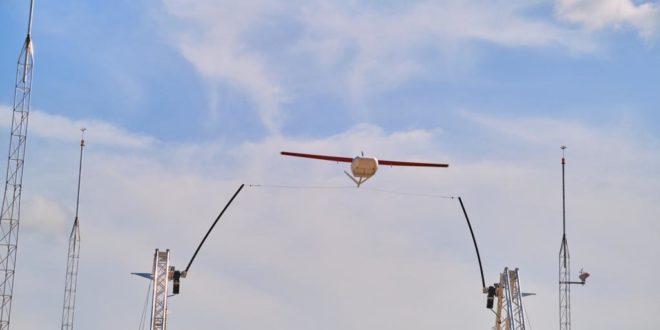The Ministry of Health has hosted an extraordinary roundtable with Global Aerial Logistics company, Zipline and other global health partners to discuss growth developments in the health sector and to advance aerial logistics integration in Ghana.
The roundtable meeting themed: “Three years of integrating aerial logistics in Ghana’s Health Supply Chain Management – Successes, Challenges, and Opportunities” is part of several engagements the Ministry of Health is undertaking to take stock of the Zipline-Government of Ghana partnership so as to find ways of fully integrating aerial logistics into the overall supply chain system of Ghana.
Three years ago, the government of Ghana entered into a service level agreement with Zipline to facilitate the distribution of critical emergency drugs, vaccines, blood and blood products to identified health facilities in Ghana. This agreement enabled the Ministry of Health to integrate the existing supply chain processes into Zipline’s system, making medical care more accessible to health outposts, primarily those in remote communities.
According to Mawuli Atiemo, the General Manager of Zipline Ghana, since the partnership, a lot has been achieved, especially in diversifying healthcare delivery structures from relying on major hospitals and polyclinics to empowering health outposts in incredibly far-reaching communities. He indicated that more than two-thousand five hundred health facilities are benefiting from “improved medical supply chain management, healthcare delivery efficiency with the service reducing the unimaginable challenges of access to critical supplies for health delivery ”.
“Through our partnership with the government of Ghana, we have brought together our expertise and capabilities to help advance more equitable medical supplies distribution in the country. So far, we have delivered more than 2.5 million doses of COVID-19 vaccines and made close to 5.9million child vaccine deliveries nationwide. These efforts, particularly in child immunization, have led to a 21-percentage point average increase in vaccine coverage in Zipline vs non-Zipline-served regions in regions like the western North. Additionally, we have reduced disease prevalence and mortality with our services”, said Mawuli Atiemo.
Mr Atiemo said independent surveys conducted by credible institutions, such as IDnsight, found that Zipline was meaningfully contributing to the government’s work to expand healthcare delivery. Key highlights from the study revealed “shortened vaccine stock outs by 60% and decreased inventory-driven missed vaccination opportunities by 42%, Decreased days facilities were without critical medical supplies by 21%, Increased the types of medicines and supplies stocked at health facilities by 10%”.
Interacting with the media at the session, the Chief Director of the Ministry of Health, Mr. Kwabena Boadu Oku Afari, commended Zipline for supporting the Health Ministry in achieving several health outcomes since the Fly-to-save a life initiative began. He added that aerial logistics had become necessary because of the many gaps it addresses, therefore, there was the need to expand its growth in Ghana, beginning with the development of an Aerial Logistic Policy.
“We have achieved much with Zipline since we engaged their services in April 2019. The number of miles they have flown to deliver health commodities to nurses and doctors in remote communities on short notice has saved many lives. When the rains cut off the Daboya area, the Zipline technology was used to transport anti-snake venom, child vaccines and other supplies. Communities that were difficult to access by road received instant deliveries within 25 minutes of request. Drones are doing more than just healthcare delivery in the world; it is why we are developing a general Aerial logistics policy that will ensure that drones are regulated to support the delivery of other logistics commodities,” – said Kwabena Boadu Oku Afari.
Zipline has marked an incredible growth expansion in Ghana since it started operations in 2019. From an initial distribution centre, it has added five more operating sites servicing government hospitals in far-reaching areas.
 Home Of Ghana News Ghana News, Entertainment And More
Home Of Ghana News Ghana News, Entertainment And More





